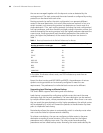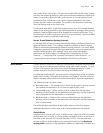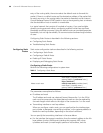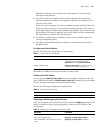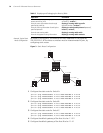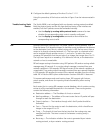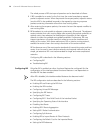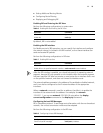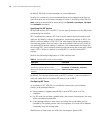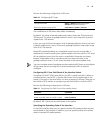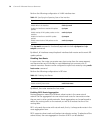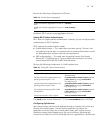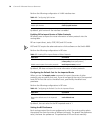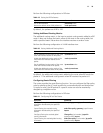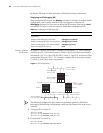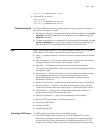
74 CHAPTER 5: IP ROUTING PROTOCOL OPERATION
By default, RIP does not send messages to unicast addresses.
Usually, this command is not recommended because the opposite side does not
need to receive two of the same messages at a time. It should be noted that the
peer command should also be restricted by the rip work, rip output, rip input
and network commands.
Specifying the RIP Version
RIP has two versions, RIP-1 and RIP-2. You can specify the version of the RIP packet
processed by the interface.
RIP-1 broadcasts the packets. RIP-2 can transmit packets by both broadcast and
multicast. By default, multicast is adopted for transmitting packets. In RIP-2, the
default multicast address is 224.0.0.9. The advantage of transmitting packets in
the multicast mode is that the hosts in the same network that do not run RIP, do
not receive RIP broadcast packets. In addition, this mode prevents the hosts that
are running RIP-1 from incorrectly receiving and processing the routes with subnet
mask in RIP-2. When an interface is running RIP-2, it can also receive RIP-1
packets.
Perform the following configuration in VLAN interface view.
By default, the interface receives and sends RIP-1 packets. It transmits packets in
multicast mode when the interface RIP version is set to RIP-2.
Configuring RIP Timers
As stipulated in RFC1058, RIP is controlled by three timers, period update,
timeout, and garbage-collection:
■ Period update is triggered periodically to send all RIP routes to all the
neighbors.
■ If a RIP route has not been updated when the timeout timer expires, the route
will be considered unreachable.
■ If the garbage-collection timer times out before the unreachable route is
updated by the update packets from the neighbors, the route will be deleted
completely from the routing table.
Modification of these timers can affect the convergence speed of RIP.
Table 9 Specifying RIP Version of the Interface
Operation Command
Specify the interface version as RIP-1 rip version 1
Specify the interface version as RIP-2 rip version 2 [ broadcast | multicast ]
Restore the default RIP version running on the
interface
undo rip version { 1 | 2 }



